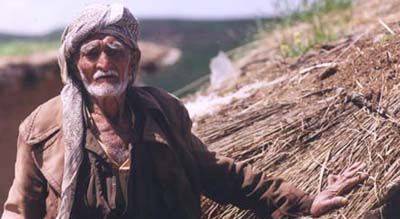|
|
Amnesty Raises Kurd Issue
Sanjay Suri
March 10, 2005

The Syrian government must put an immediate end to human rights abuses against Syrian Kurds, Amnesty International said in a report published Thursday on the eve of the anniversary of the Qamishli clashes.
More than 30 Kurds were killed in clashes that spread from a football match between Kurdish and Arab teams in Qamishli in north-eastern Syria in March last year. The clashes brought into focus the plight of Kurds in Syria.
Amnesty says that more than 2,000 people, almost all of them Kurds, were arrested after the riots. ''Kurdish detainees, including children as young as 12, women, teenage girls and elderly people, were reportedly tortured and ill-treated,'' the report says. ''Dozens of Kurdish students were expelled from their universities and dormitories, reportedly for participating in peaceful protests.''
Kurds remain a people without a nation, spread across Turkey which has the largest population, Iraq, Iran and Syria. Kurds have faced persecution in all these countries. There are an estimated 1.5 to two million Syrian Kurds.
The abuse of Kurd rights has continued after the clashes last year, the Amnesty report says. ''The authorities must open investigations into the allegations of unlawful killings, deaths resulting from torture and ill- treatment in custody and torture of Kurds that have come to light since March 2004,'' Amnesty said in its report.
Since March 2004 there has been a significant increase in the number of reported deaths of Kurds as a result of torture and ill-treatment in custody, the Amnesty report says.
''Five of nine such deaths reported to Amnesty International in the seven months after March 2004 were of Syrian Kurds,'' the report says. ''There have also been a number of deaths in suspicious circumstances of Kurdish military conscripts during the same period: at least six died, reportedly due to beatings or shootings by military superiors or colleagues. No investigation is known to have been carried out into any of the deaths in either category.''
The report, which Amnesty says followed several months' research, also describes the ''systemic identity-based discrimination suffered by the Syrian Kurds.'' The report highlights cases of Kurdish human rights defenders who have sought to promote rights of the Kurdish population in Syria and suffered arrest, torture and unfair trial.
''The Syrian authorities must set up an investigation into the apparently disproportionate response of the security forces to the March 2004 events,'' said Amnesty International. ''They must investigate the alleged unlawful killings and deaths as a result of torture and ill-treatment in custody and the widespread reports of torture, and propose remedies to deal with the systemic discrimination against Kurds as well as other human rights violations that may have contributed to the tension and the outburst of violence.''
The Amnesty report also calls on the Syrian authorities to end the prohibitions on the use of the Kurdish language in education, the workplace, official establishments and at private celebrations, and to allow children to be registered with Kurdish names and businesses to carry Kurdish names.
Amnesty says several hundred thousand Syrian Kurds are effectively stateless and, as such, are denied the full provision of education, employment, health and other rights enjoyed by Syrian nationals, as well as being denied the right to have a nationality and passport.
It has asked for legislation under which prisoners of conscience have been imprisoned to be brought in line with Articles 18-22 of the International Covenant on Civil and Political Rights (ICCPR), to which Syria has been a party since 1969. That guarantees the right to freedom of conscience, expression, assembly and association and the right to exercise these freedoms without undue interference. It has asked for independent investigations into allegations of unlawful killings and an amendment of legislation on nationality to find an expeditious solution to the statelessness of Syrian-born Kurds.
|
|



